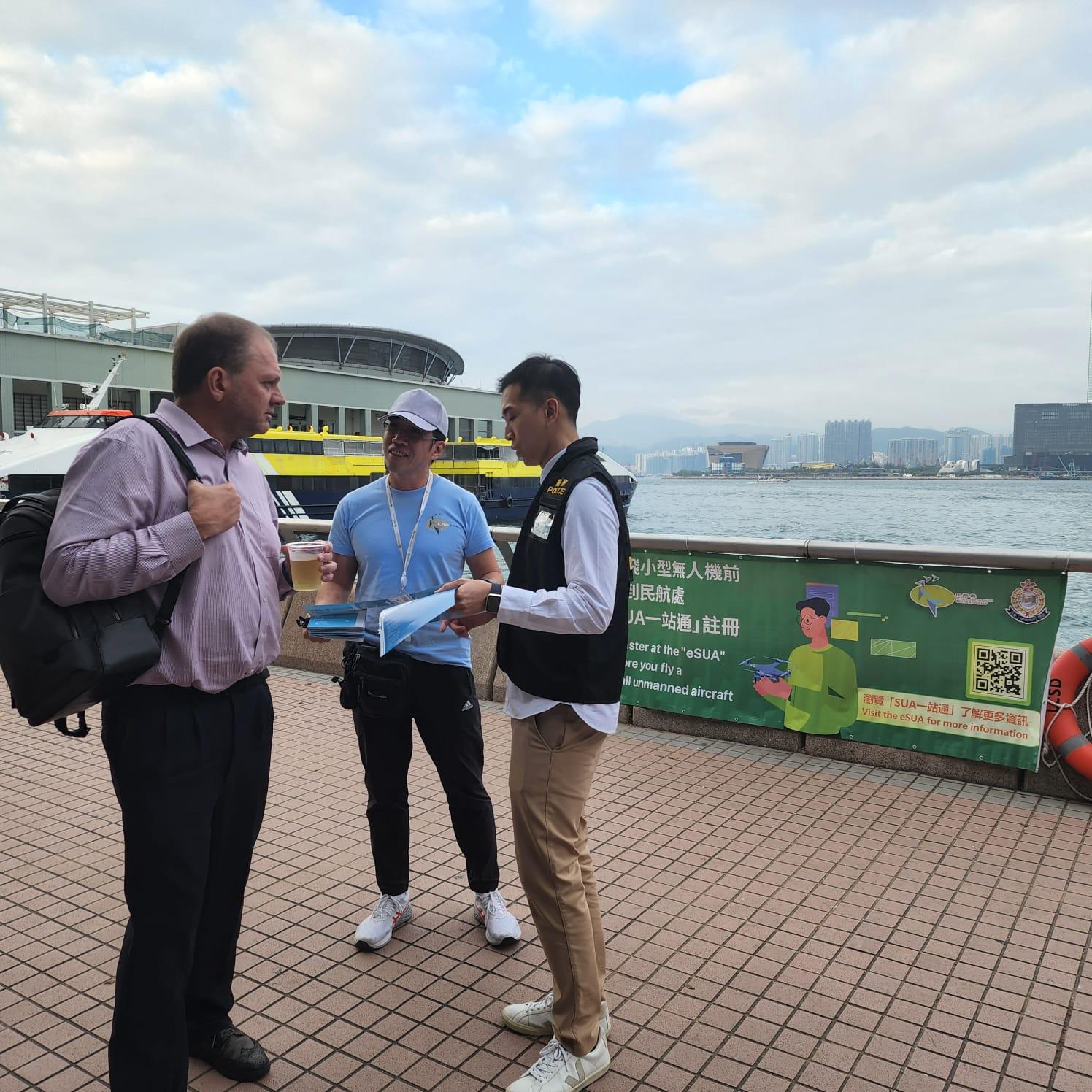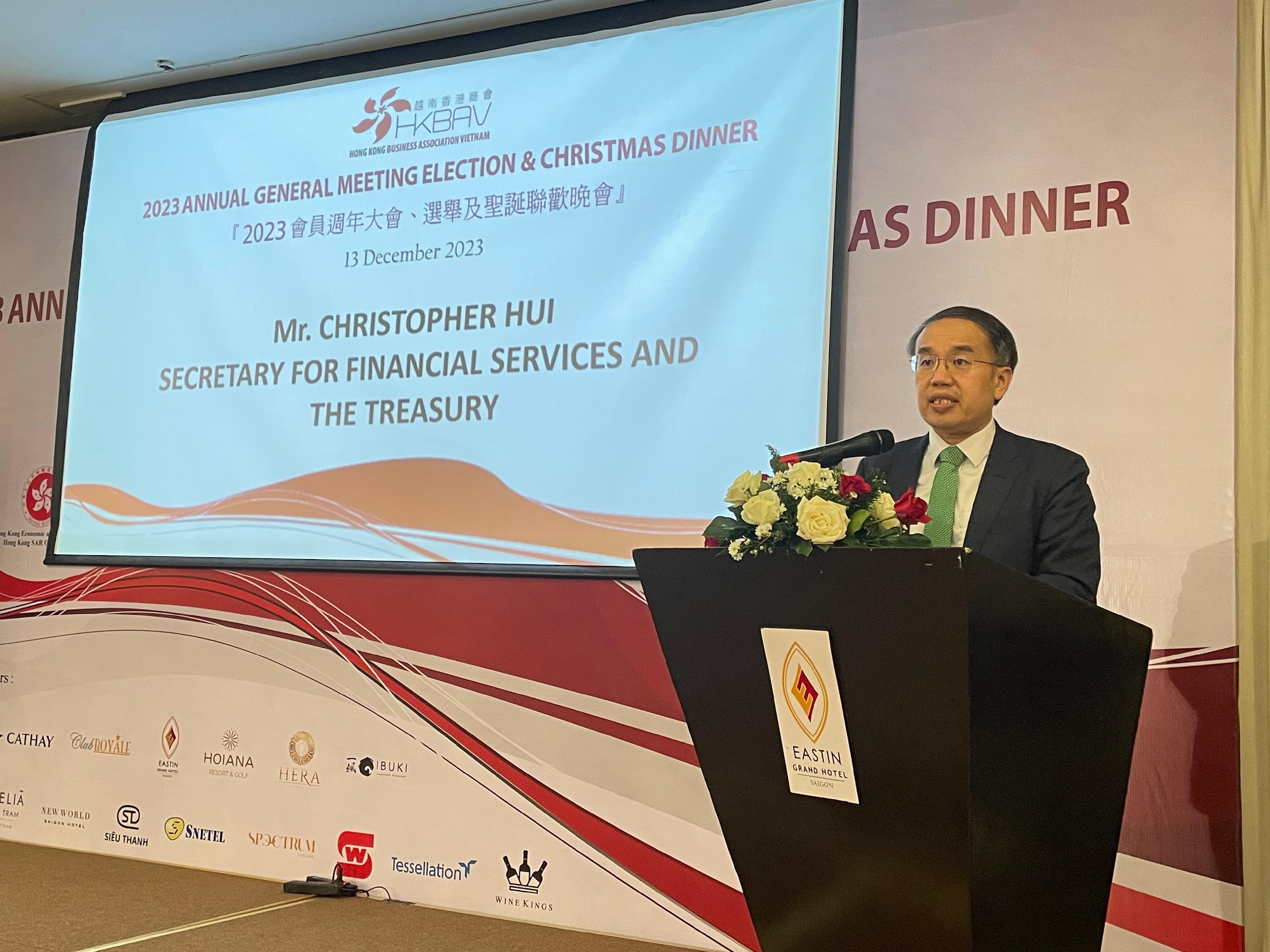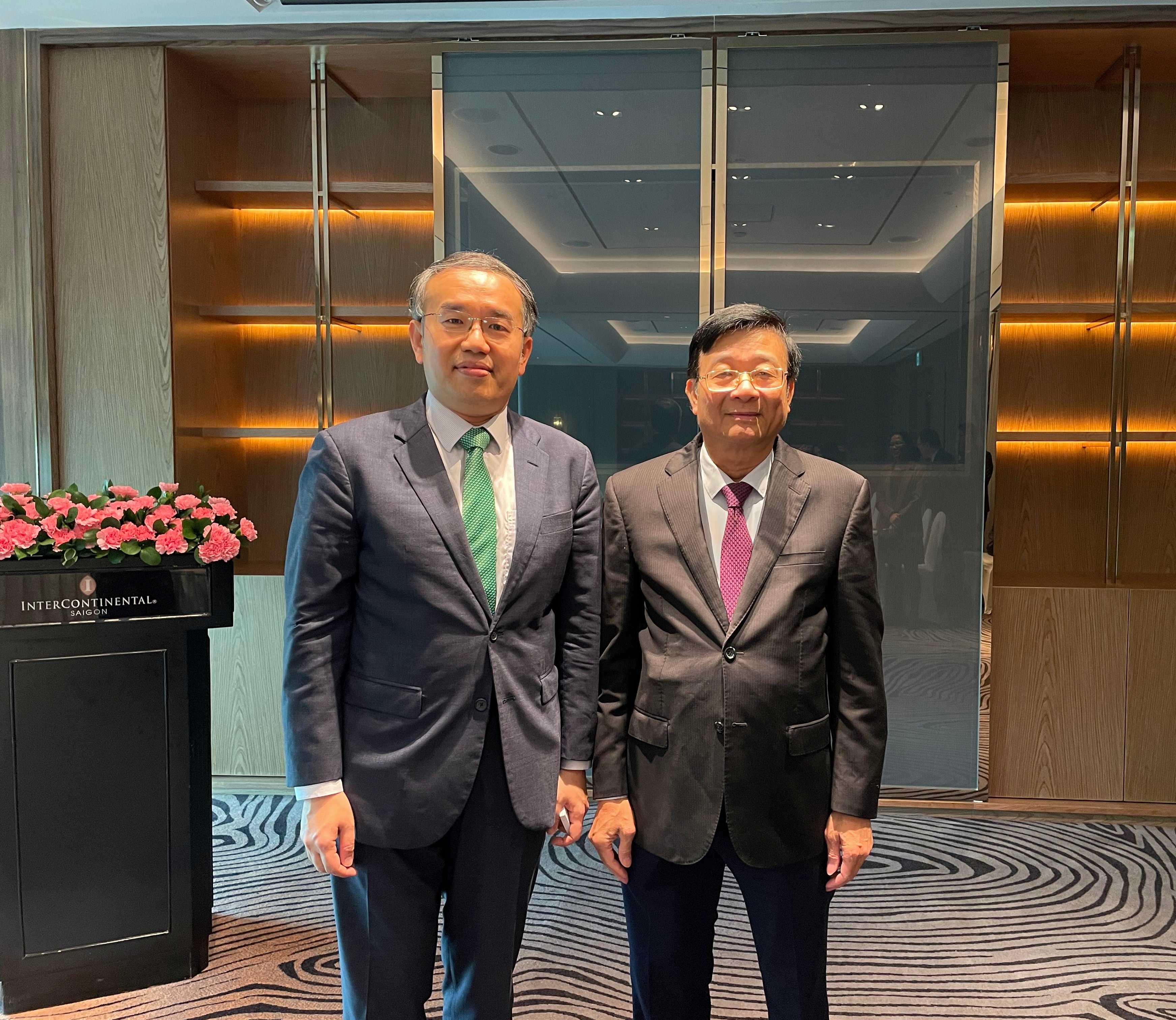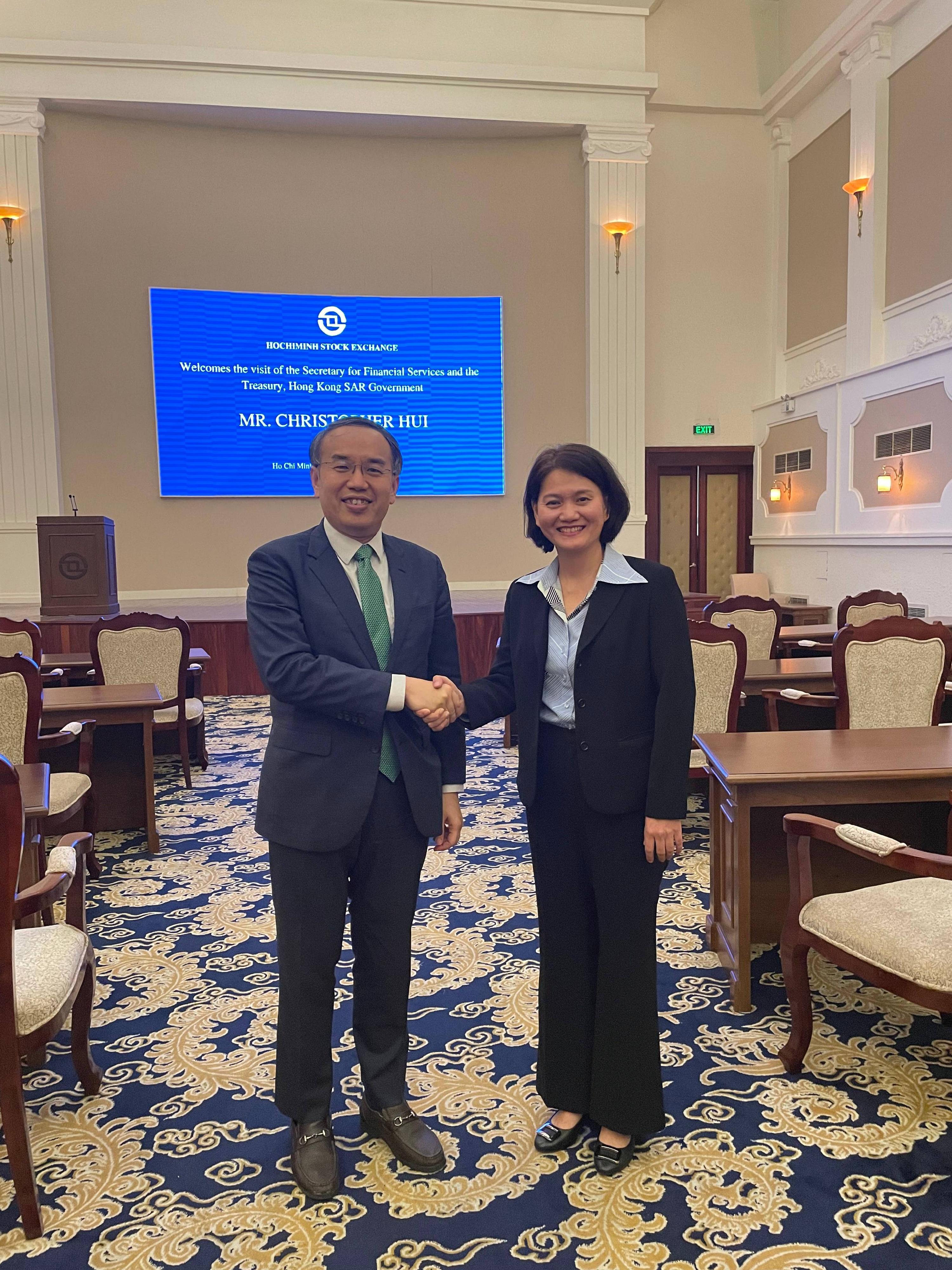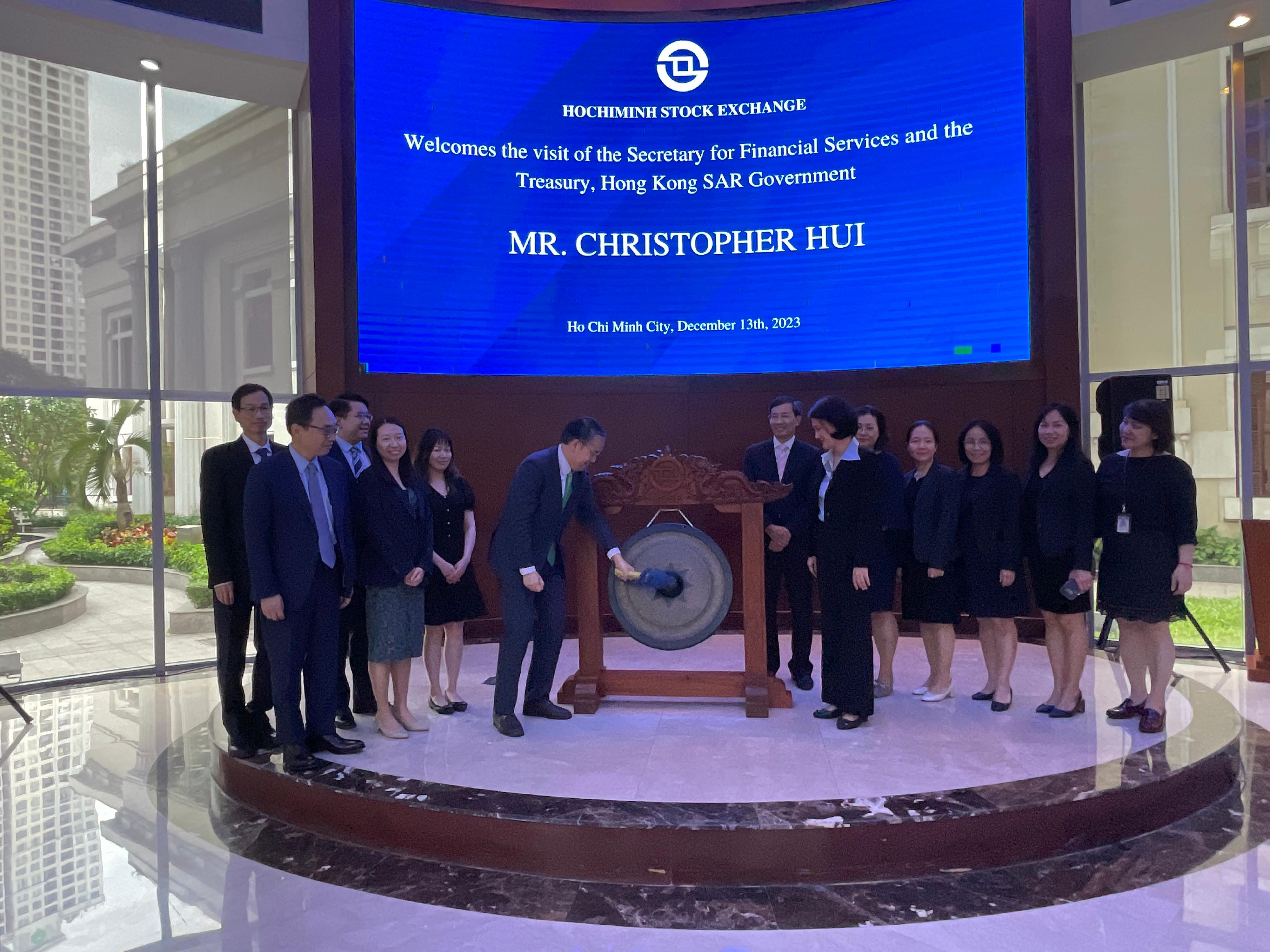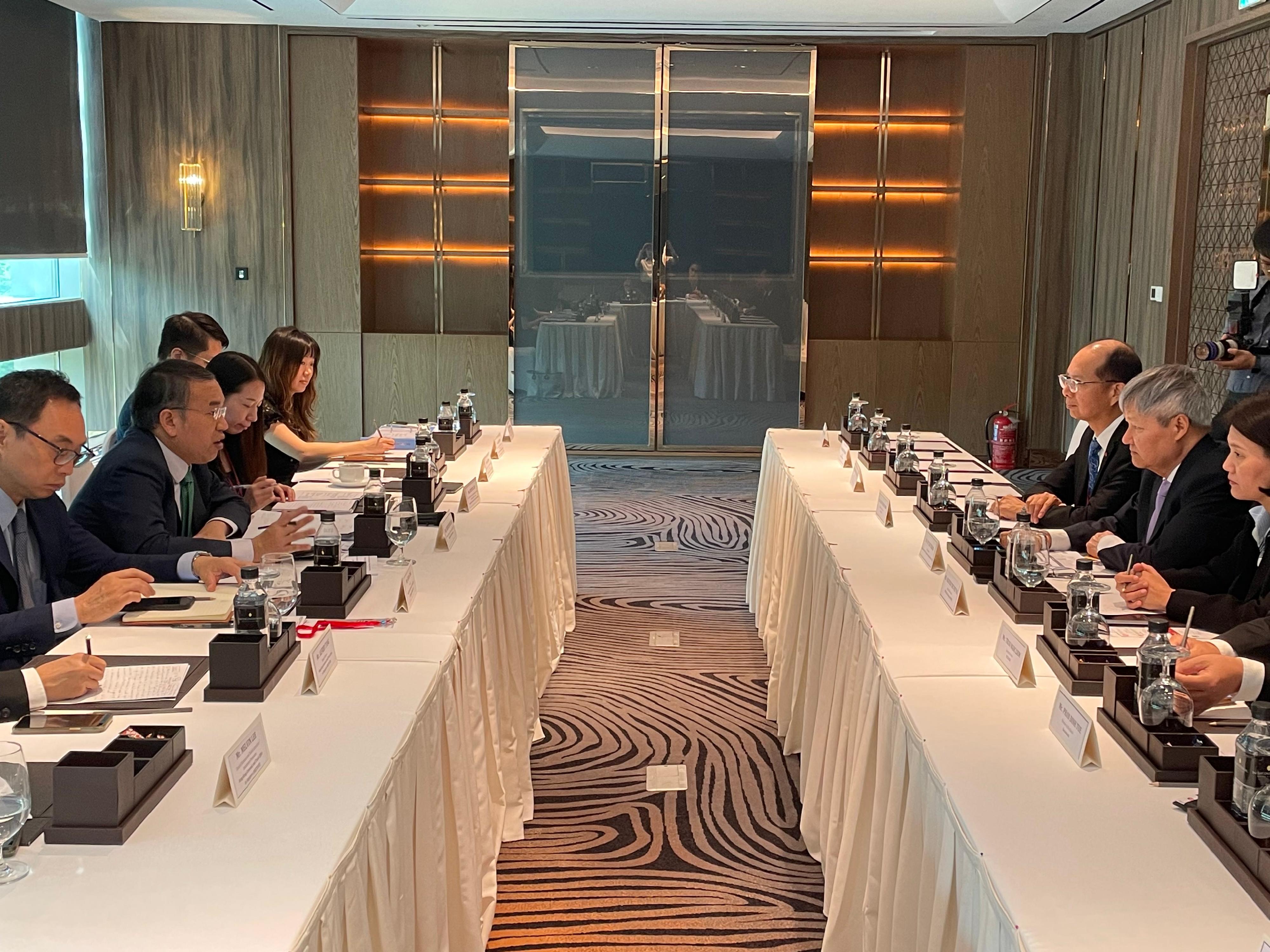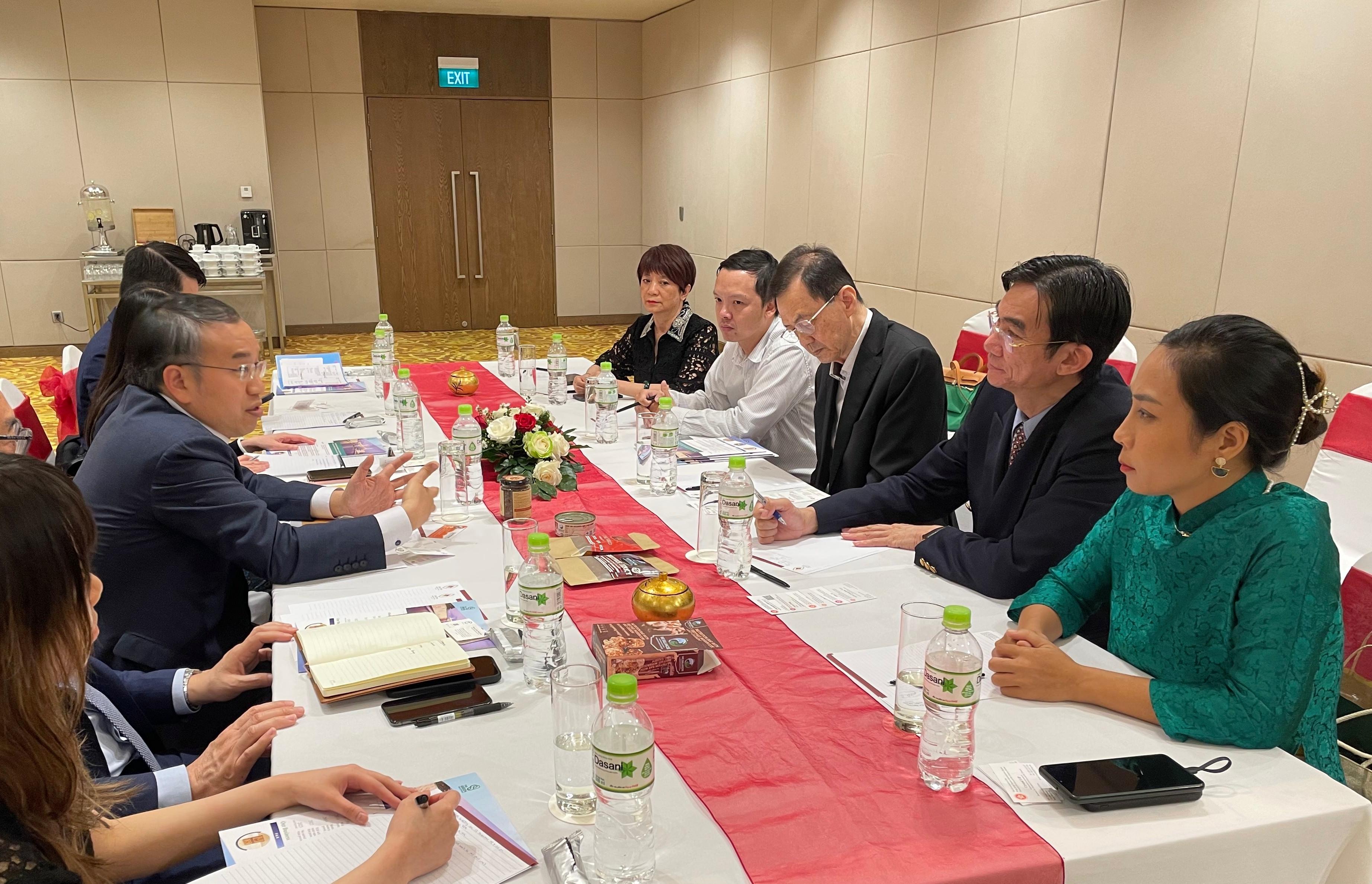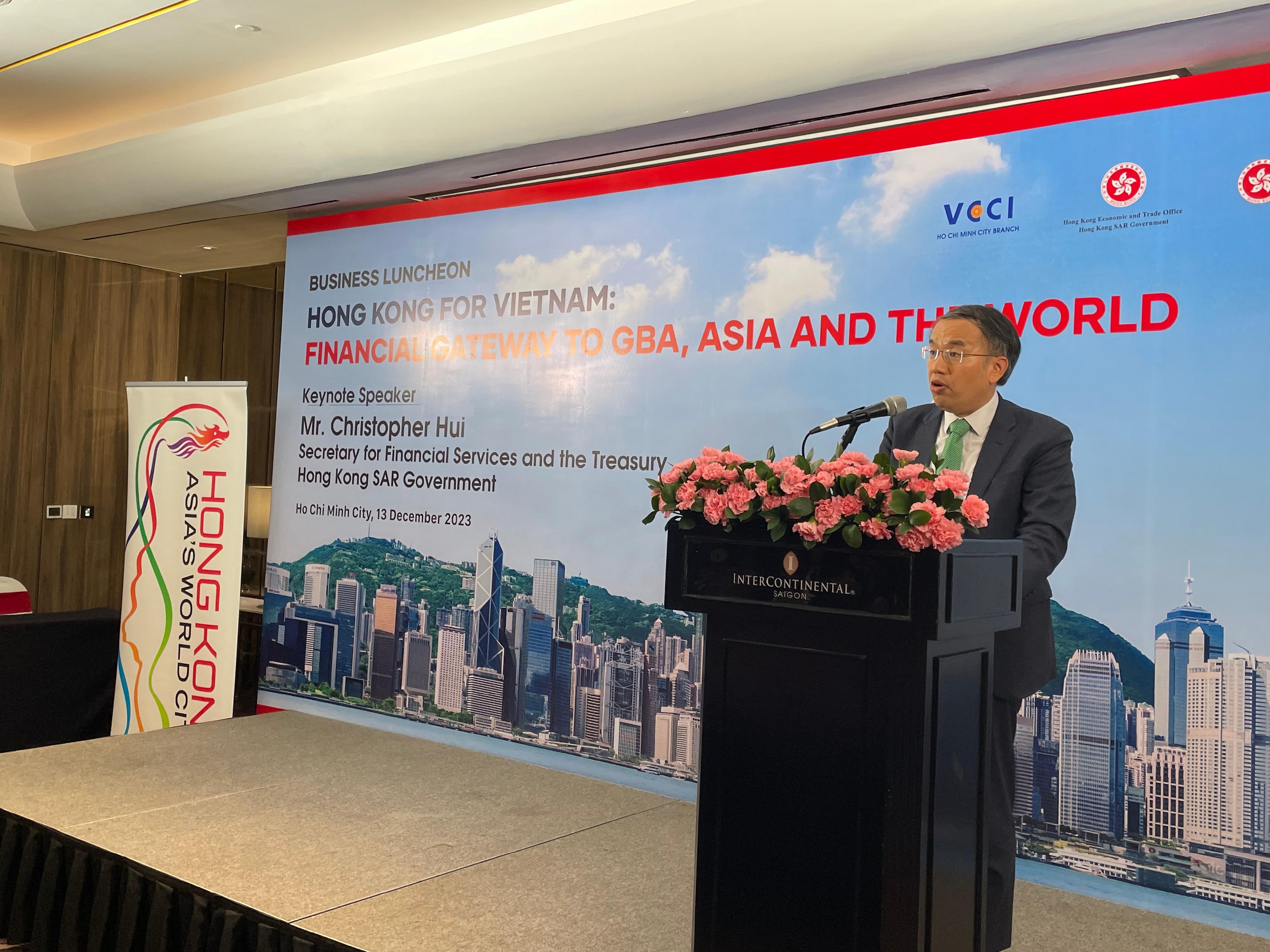Following is the keynote speech by the Secretary for Financial Services and the Treasury, Mr Christopher Hui, at the Hong Kong Business Association Vietnam (HKBAV) Christmas Dinner in Ho Chi Minh City, Vietnam today (December 13, Vietnam time):
Michael (Chairman of the HKBAV, Mr Michael Chiu), distinguished guests, ladies and gentlemen,
Good evening. It is my great pleasure to join you at the Hong Kong Business Association Vietnam Christmas Dinner tonight. The HKBAV is an established and active association of Hong Kong businesses in Vietnam with members of all nationalities who are interested in having business relations with Hong Kong. I heard from Owin, Director of Hong Kong Economic and Trade Office (HKETO) that the HKBAV has partnered with the HKETO in organising a number of successful events in strengthening the Hong Kong/Vietnam connection. My sincere thanks to the HKBAV for your meaningful work.
Vietnam always gives me a good and strong impression – not only its delicious Vietnamese spring roll, coffee and value-for-money French cuisines, but more importantly the conscientious working attitude of Vietnamese people and outward looking vision of Vietnamese businessmen. No wonder Vietnam's economy has been growing fast in recent years – 8 per cent in 2022 and 5.3 per cent in the first nine months this year, despite the global economic slowdown arising from various factors including global interest rate hikes and geopolitical tensions.
To grow your business further, going regional and global will be a natural development. In the process, Hong Kong is your valuable partner to help you venture abroad. Firstly, Hong Kong and Vietnam already have a strong base of economic co-operation to start with.
Economic relations between Vietnam and Hong Kong is steadfast and close. In 2022, Vietnam was Hong Kong's seventh-largest trading partner in trade in goods amounting to US$32.7 billion. The average annual growth rate was 14.5 per cent from 2018 to 2022. Vietnam was Hong Kong's second-largest supplier of rice. Hong Kong's businessmen are active in doing business and investing in Vietnam. Hong Kong is the fifth-largest foreign investor in Vietnam.
International financial centre
Hong Kong has the strength and capacity to assist Vietnamese companies in expanding their businesses in the region. Being a well-known international financial centre, Hong Kong has deep and sophisticated stock and bond markets, as well as a vibrant ecosystem of venture capital, private equity and asset management firms. They are to serve the funding needs of enterprises and governments ranging from business expansion, infrastructure development to green transition.
Hong Kong's financial markets are deep and wide, both in terms of capital and talent. Seventy-three of the top 100 global banks, and 12 of the world's top 20 insurance companies, operate in Hong Kong. Our stock market has a capitalisation of more than US$4.5 trillion, about 13 times our GDP (gross domestic product). Last year, Hong Kong raised a total of US$13.4 billion of funds through initial public offerings (IPOs), continuing to be one of the top fund raising hubs. Some US$200 billion in bonds were issued, and we topped Asia in terms of international bonds arranged by Asian entities.
Closely following the global advancement, Hong Kong's economy is highly digitised. We have a world-class fintech infrastructure with robust regulatory environment. About 1 000 fintech companies and start-ups are operating in Hong Kong, including virtual banks, virtual insurers and virtual asset trading platforms.
Holding the special status of Special Administrative Region of China, Hong Kong enjoys a unique advantage in connecting with the Chinese capital market. Hong Kong's various mutual market access schemes with the Chinese Mainland include Bond Connect, Stock Connect, Wealth Management Connect, and the HKD (Hong Kong Dollar)-RMB (Renminbi) Dual Counter Model in the stock exchange. Hong Kong is also the world’s offshore RMB business hub. We hold about one trillion in RMB deposits, the largest offshore RMB liquidity pool in the world. We handle 75 per cent of the world's offshore RMB payments. These establish Hong Kong's status as the premier gateway for overseas investors to enter the Mainland financial markets.
Family offices
Hong Kong is a premier hub for family offices. We welcome family offices from around the world to set up in Hong Kong, to tap into our unique advantages and far-reaching investment opportunities. Our financial professionals in asset and wealth management will serve you well.
The Government has consistently taken a multipronged approach to create a conducive business environment for family offices. In March this year, we issued the Policy Statement on Developing Family Office Businesses in Hong Kong to set out our policy stance and measures. Notable examples include the tax exemption regime launched this year for family-owned investment holding vehicles managed by single family offices in Hong Kong, and the launch of a new Network of Family Office Service Providers to bring together relevant professional services providers and create more business opportunities.
Rule of law
Confidence matters when you consider where to conduct your business and where to put your money. Hong Kong has a long-established common law system and has been upholding the rule of law and independent judiciary for years. This should give you the confidence and trust. This year's Rule of Law Index by the World Justice Project makes clear. The global Index ranked Hong Kong the 23rd out of 142 countries and jurisdictions. For comparison, the UK (United Kingdom) finished 15th and the United States 26th. The judiciary in Hong Kong, let me add, continues to exercise its powers independently.
"One country, two systems" principle
The "one country, two systems" principle is the institutional strength of Hong Kong. Hong Kong is part of China, and we have easy access to the Mainland market. But at the same time, we are operating on different economic and legal systems that distinguish us from the rest of the country. That allows us to continue to positively engage with international communities. Hong Kong continues to be a free port with free flow of goods, capital, talent, as well as data. The Chinese Mainland Government has been reiterating that the principle is good. Chinese President Xi Jinping has said on several occasions over the past year, the principle is here to stay in the long run.
The 14th Five-Year Plan of China acknowledges the significant functions and positioning of Hong Kong in the overall development of the country. It supports Hong Kong to enhance its status as an international financial centre, strengthen its status as a global offshore RMB business hub, an international asset management centre and a risk management centre, as well as deepen and widen the mutual access between the financial markets of Hong Kong and the Mainland.
GBA
The Guangdong-Hong Kong-Macao Greater Bay Area (GBA) comprises the two Special Administrative Regions of Hong Kong and Macao, and the nine municipalities of Guangzhou, Shenzhen, Zhuhai, Foshan, Huizhou, Dongguan, Zhongshan, Jiangmen and Zhaoqing in Guangdong Province of China. The total population in the GBA is over 86 million with a sizeable middle class. Its GDP is over RMB13 trillion (US$1.9 trillion) in 2022, equivalent to the 12th largest economy in the world. The GBA offers tremendous business and investment opportunities. The development of the GBA is accorded the status of key strategic planning in China's development blueprint, having great significance in the country's commitment to continue to reform and open up.
Being the most open and internationalised city in the GBA, Hong Kong plays an important and irreplaceable role in the GBA development, and stands to benefit.
I encourage all Vietnamese companies to tap into the business and investment opportunities in Hong Kong and through Hong Kong to other markets including the GBA.
We are aware that the entrance visa requirements between Hong Kong and Vietnam have been causing inconvenience to business travellers and tourists. Addressing this long existing issue, we announced two months ago certain relaxation and facilitation measures to visitors from Vietnam. These include extending the issue of a multiple visa of validity of 24 months with at most 14 days for each stay to Vietnamese nationals who have (a) gone for at least three trips to at least two countries/territories in the past 36 months, or (b) visited Hong Kong for employment, training, staying or studying in the past 24 months. At the same time, we have also relaxed the visa policy for allowing Vietnamese nationals to work and study in Hong Kong.
When you think about bringing your business overseas, do count on Hong Kong as your trustworthy partner. Together, we make a difference.
Thank you. Have an enjoyable dinner and a merry Christmas and happy New Year around the corner.

